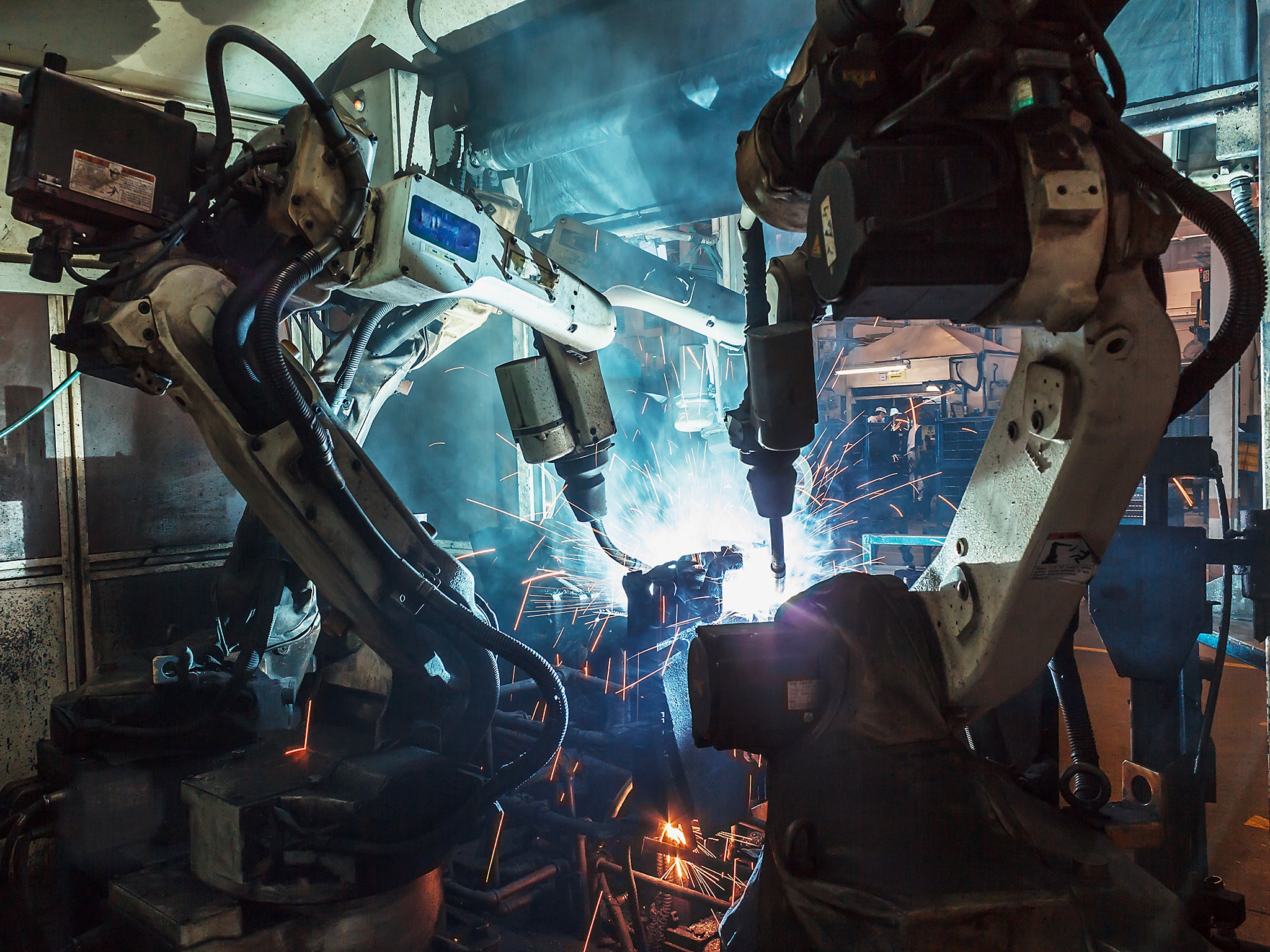Brexit is distracting political parties from the real threat facing the UK – digital inequality
We risk sleepwalking into a world in which the infrastructure of the digital economy, its rules, and the power that resides in that control, is shaped and controlled by a few dominant American companies

Brexit is taking our eyes off the future. The immense complexity of the task is, like a black hole, sucking all the energy and ideas of British politics towards it. Many of tomorrow’s economic and social challenges are cast in its shade as a result. The party manifestoes – which for the most part fought yesterday’s battles – attests to this. Yet for progressives, understanding how tomorrow’s world is being shaped by emerging economic, social and technological energies is vital to making it more equitable and plentiful than today. After all, as David Bowie said, “tomorrow belongs to those who can hear it coming”.
Consider the rise of data-driven platforms. While Labour committed to taking the utilities and rail companies back into public ownership, the commanding heights of the digital economy were left untouched. Other parties were similarly quiet. Yet with digital data a ubiquitous and essential source of value, absent policy intervention four or five ‘super star’ firms are set to harvest and monetise vast swathes of data creating huge concentrations of economic power. Meanwhile, the power asymmetries embedded in platforms such as Uber are undermining labour market regulations and deepening precariousness for many.
Crucially, we risk sleepwalking into a world in which the infrastructure of the digital economy, its rules, and the power that resides in that control, is shaped and controlled by a few dominant American companies. This is the new dominant economic position that progressives need to understand and respond to. How can we build a democratically governed and owned data infrastructure that can produce greater equity and genuine innovation? Can platforms be governed in more co-operative approaches to ensure labour enjoys security and voice alongside flexibility? And how should we regulate unaccountable, private algorithms, laced through with questions of economic power? Much work is needed.
The spectre of automation also provokes breathless commentary, much of it in the short term almost certainly exaggerated and at odds with our current economic challenges. Insecure work, sluggish pay, and weak productivity are bigger challenges facing our labour market today than the much-heralded ‘rise of the robots’. Nonetheless, in the decades ahead a suite of rapidly improving technologies – large-scale data analysis, algorithmic management, machine learning techniques, the application of AI, advanced robotics, 3-D printing – constitutes a coherent set of techniques for what the urbanist Adam Greenfield calls the production of the post-human every day.
This threatens a world of spiralling inequality rather than mass joblessness. Automation risks accelerating returns to capital as those who own the technologies reap the rewards, while it could further polarise the labour market as the world of work and the type of tasks humans perform transforms.
Avoiding a future of deepening inequalities will require new models of common ownership to ensure technological change doesn’t simply reproduce existing inequalities but expands and democratises its proceeds. Deepening and advancing the ideas laid out in the recent ‘Alternative Models of Ownership’ report could be one fruitful avenue but serious thought is required on all sides. Moreover, while upgraded skills is unlikely to be enough on its own to hold back automation-driven inequality, clearly more can be done to ensure that everyone is better equipped to engage with the future.
More than that, automating and associated technologies have the potential to shake the foundations of society: the relationship between employment and the production of value, our notions of scarcity, commodities, value, and time. What are the ethical and regulatory standards in which technologies should operate? What are the deals that we as a society want to strike with them? Can we use the technologies to live more agreeably and well, working less but more fruitfully? After all, these technologies are ultimately embedded in institutions and norms that politics – collective organising, debate, and action – build. We must begin that task by asking what we want from technologies and trying to create that society, rather than leaving our future in the hands of Silicon Valley.
Technological change is not bound to create a more just and fruitful configuration of economic power; we must understand the processes driving it and shape change to create a more abundant and equitable future. To do so, we need to get the future in our bones.
Mathew Lawrence is a Senior Research Fellow at IPPR and works on the IPPR Commission on Economic Justice
Join our commenting forum
Join thought-provoking conversations, follow other Independent readers and see their replies
Comments
Bookmark popover
Removed from bookmarks